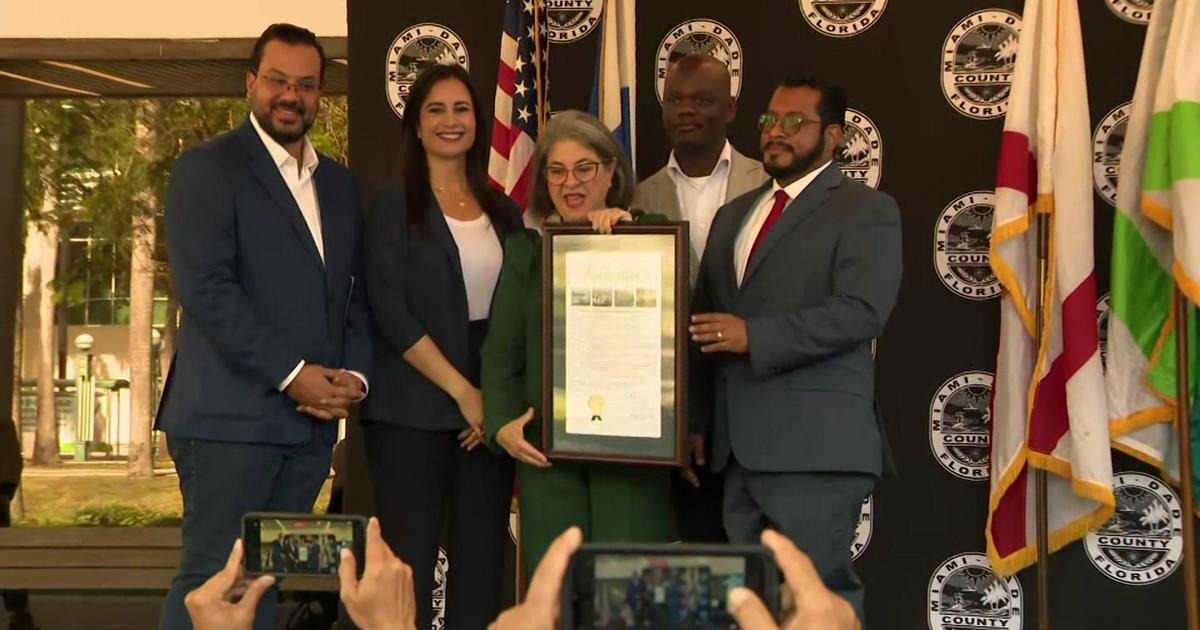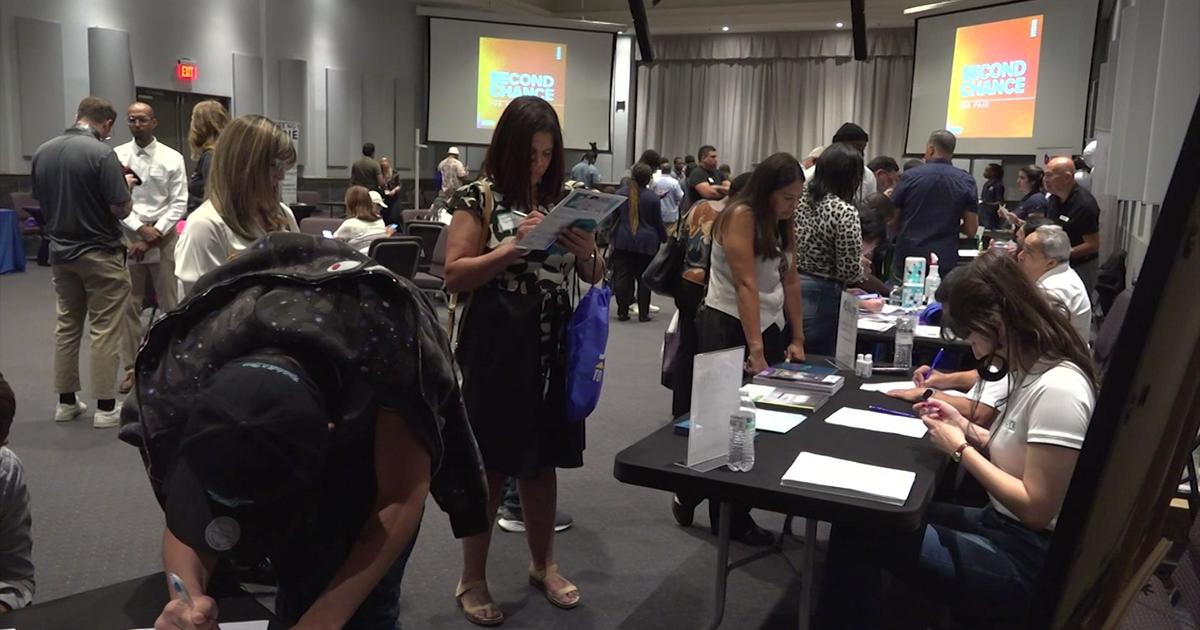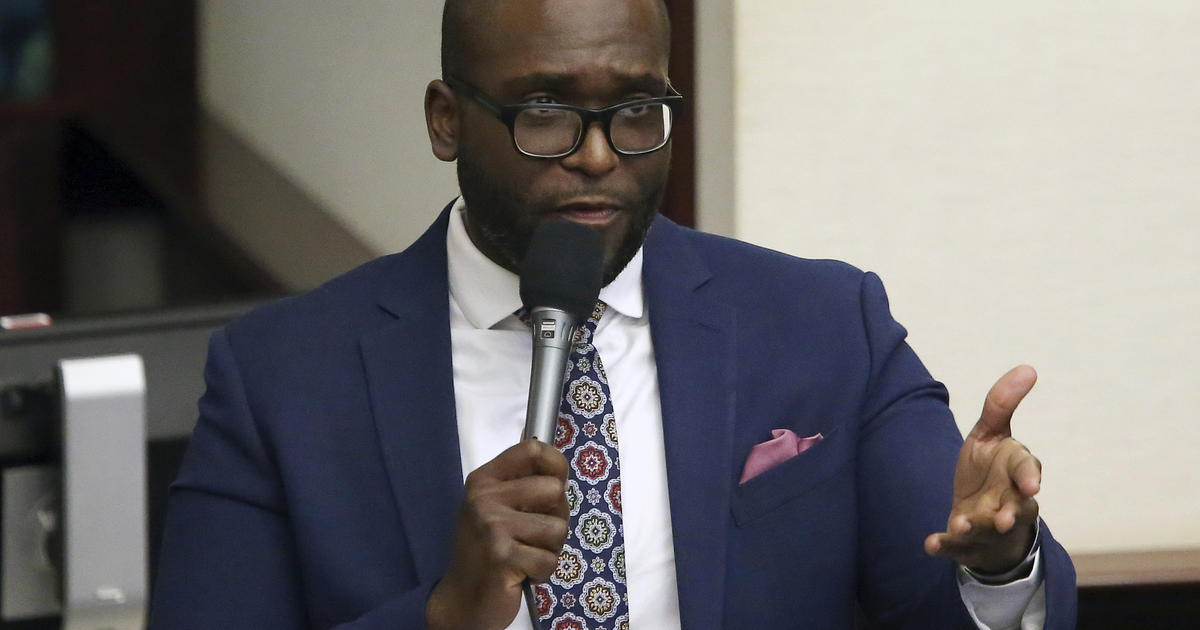Revamped Attempt To Scrub Voter Rolls To Get Underway
TALLAHASSEE (CBSMiami/NSF) - The state will soon begin forwarding the names of suspected non-citizens on the voter rolls to local elections officials, formally kicking off the second version of Gov. Rick Scott's controversial scrubbing program, Secretary of State Ken Detzner said Tuesday.
"We'll start shortly after the first of the year, on a case-by-case basis, reviewing files and then forwarding them down to the supervisors," Detzner said.
The state has been working to finalize a procedure for using a federal list to vet registered voters since 2012, when it first struck a deal with the Department of Homeland Security over the use of the Systematic Alien Verification for Entitlements, or SAVE, database.
Now, the final steps of putting that process in place are close. Detzner's office has sent a proposed template for a "memorandum of agreement" to the Florida State Association of Supervisors of Elections, the organization that represents county election chiefs. The organization is expected to respond to the state over the next week or two.
Ron Labasky, general counsel of the Florida State Association of Supervisors of Elections, confirmed that the group is reviewing the draft prepared by Detzner's office.
Once the template is finalized, any county supervisor that signs an agreement would be able to access the SAVE database on their own. That will allow them to essentially double-check the information of a suspected non-citizen against the database in an effort to make sure no eligible voters are removed from the rolls.
"We want them, once they get the list ... once they've given written notice to individuals, if they need to go into the SAVE database, they'll also have access to it," Detzner said.
The DOS would start the revised vetting process by running the names of individuals who register to vote while getting their driver's license or state ID card through the Department of Highway Safety and Motor Vehicles database. If the name is attached to an alien identification number, which indicates the person might be a non-citizen, the number will be checked using the SAVE database.Potential non-citizen matches would then be sent to local elections officials, who are the only ones with the authority to remove a voter from the rolls.
State officials are trying to avoid a repeat of the first effort at preventing suspected non-citizens from voting, pushed by Gov. Rick Scott but which ground to a halt in 2012 after complaints from the supervisors that the lists they were given were riddled with inaccuracies. Voting-rights groups also alleged that the "voter purge" targeted minority voters who typically support Democratic candidates.
The first attempt at a purge resulted in dueling lawsuits between the federal government and the state, with the U.S. Department of Justice alleging the scrubbing was illegal and the state suing the U.S. Department of Homeland Security to get access to save.
Detzner said he believes the use of SAVE will help with some of the supervisors' concerns.
"I think that they have a great deal more confidence and the reason is ... because now we have access to the only database that we know of in the United States that's credible and reliable to confirm whether somebody's a citizen or not," he said.
Labasky said he was planning to review the proposed memorandum over the next few days. The supervisors believe using SAVE is a more reliable way to screen voting rolls than the state's first attempt, Labasky said.
"It clearly is far better than anything they had a year ago," he said.
The News Service of Florida's Brandon Larrabee contributed to this report.



